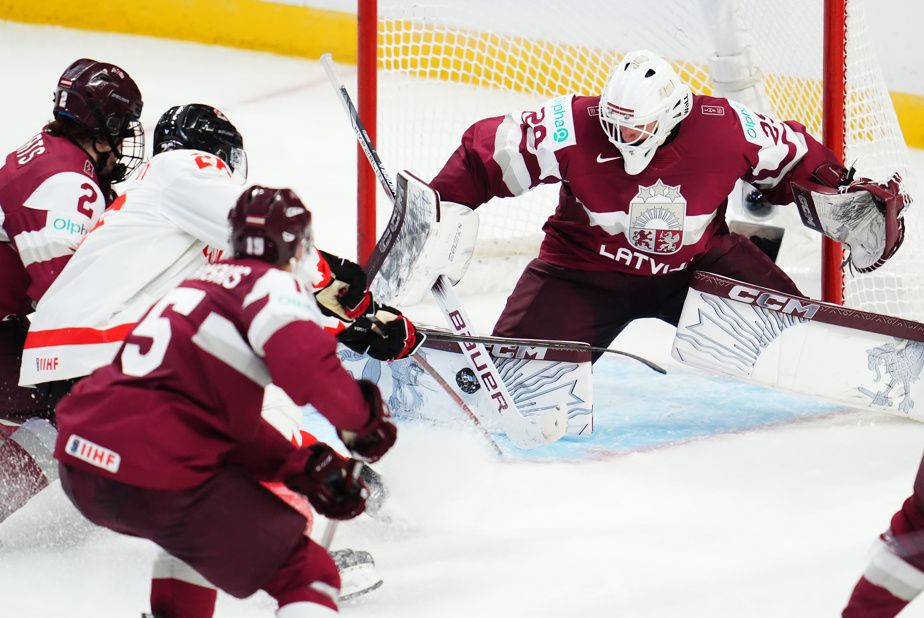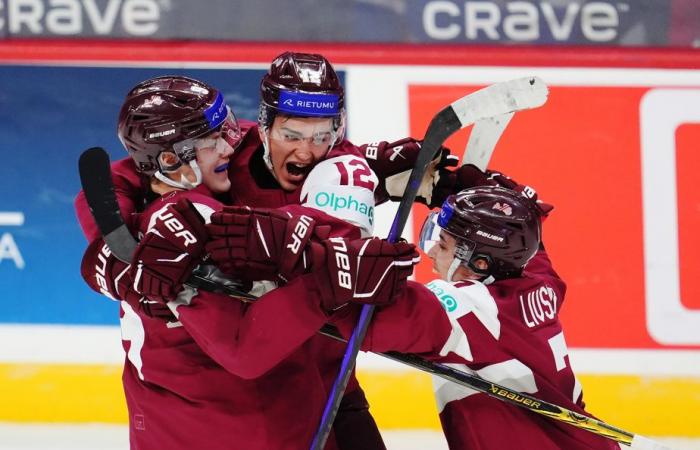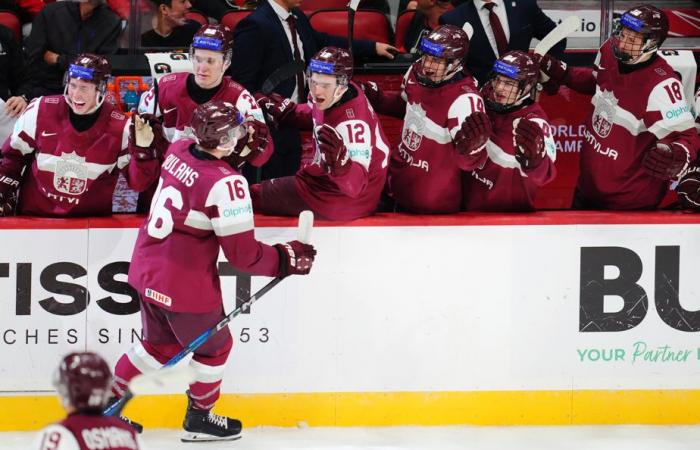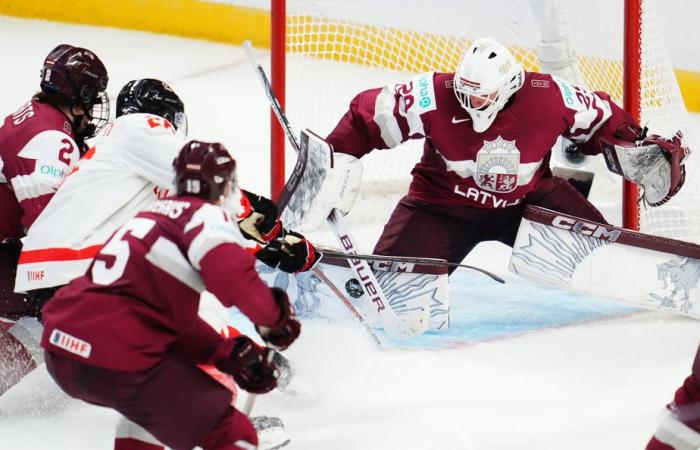The Canadian team has just taken quite a slap in the face at the World Junior Championship.
Posted at 11:18 p.m.
After last year’s 10-0 massacre, a 41-4 advantage in four games over the decades at this tournament, Latvia was in no doubt on Friday night in Ottawa.
The Latvians, in addition, had four players aged 16 or younger in their squad. Canada for its part had three 17-year-old players, a first since 1991, but two of them, defenseman Matthew Schaefer in 2025 and forward Gavin McKenna in 2026, could be drafted first in the NHL in the coming years. years.
To everyone’s surprise, Latvia, a nation of 1.8 million people, scored one of the biggest victories in its history, 3-2 in a shootout, after twice overcoming a deficit of one goal late in the third.
Not only did Chicoutimi Saguenéens defender Peteris Bulans score the winning goal in the shootout, but he also tied the game with less than three minutes remaining in the third period, and the Saguenéens’ goaltender Sherbrooke Phoenix Linards Feldbergs blocked 48 of the 50 shots aimed at him and allowed nothing in the shootout.
PHOTO SEAN KILPATRICK, THE CANADIAN PRESS
Peteris Bulans celebrates his goal scored in the third period.
Ironically, Latvia had more players from the Quebec-Maritimes Major Junior Hockey League (QMJHL) on its roster than Canada. Four against three!
This defeat is not dramatic for Canada since it is the preliminary round, it can even still finish first, but it is a severe warning to this team which is a little too messy and undisciplined despite its domination in the whole.
Canada’s head coach, Dave Cameron, did not castigate his troops. “We must pay tribute to Latvia. We got 56 shots. They blocked them, and when they weren’t blocking them, their goalie was doing it. I don’t know how much time we spent in the opponent’s zone, but we probably could have scored between six and eight goals. »
Since the arrival of Bob Hartley in 2016 to turn around the Latvian development program, this nation has progressed, despite sometimes more difficult matches. Latvia is in its fourth consecutive tournament in the world group, having been there only once in the previous nine years.
Unlike other second-rate national teams, Latvia exports its young talent. There are players all over the world, in Europe, in the United States in the USHL and in the Canadian junior circuit, including their four QMJHL players, three in Quebec, one in New Brunswick.

PHOTO SEAN KILPATRICK, THE CANADIAN PRESS
Latvian goalkeeper Linards Feldbergs stood like a wall in front of the Canadian players.
Canada’s opponent was obviously largely dominated in terms of shots, 50 to 21, but its defensive strategy, blocking the middle of the ice in defensive territory, served it well and we even managed several breakthroughs in the opposing zone in the during the meeting. We didn’t just defend ourselves.
This team is not devoid of talent and with so many young players on its roster, the next few years are promising.
The match was overshadowed by the injury suffered in the first period by Matthew Schaefer, after he violently collided with the opposing goal post. He did not return to the meeting. Not only is Schaefer a key player for Canada despite his young age, but this Ontarian from the Erie Otters is battling with American James Hagens for the honor of being drafted first overall in June. Hoping the injury isn’t too serious. Canada’s coach did not provide an update on his case after the game.
McKenna, 16 just seven days ago, has been Canada’s best offensive player. He was used the most among the attackers, at almost 19 minutes. Another top prospect, but in 2025, the colossus Porter Martone, was satisfied with seven minutes.
Several talented forwards were left out of this tournament, including first-round picks Beckett Sennecke, Tij Iginla, Carter Yakemchuk and Canadian prospect Michael Hage. Friday’s outcome is sure to give ammunition to Hockey Canada’s detractors.








